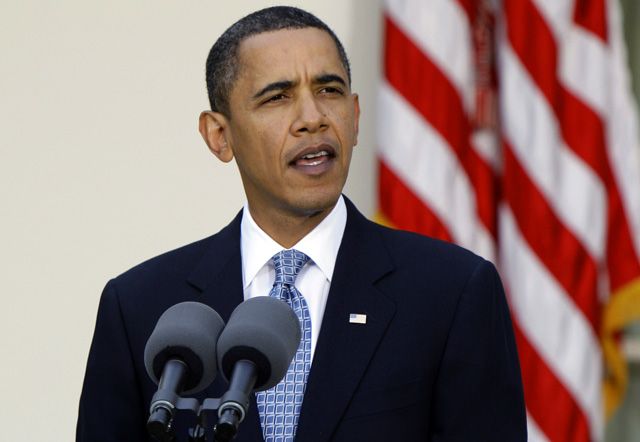Washington: President Barack Obama won an important victory on his biggest domestic issue as a Senate panel endorsed a bill to overhaul the US health care system.
The Finance Committee vote Tuesday gave a boost to Obama, who has made passage of a health care bill the signature issue of the first year of his presidency.
His success or failure could shape next year's congressional elections and determine whether he has the political clout to prevail on global warming, Afghanistan war policy and other critical issues.
At the White House, Obama called the vote "a critical milestone" toward remaking America's health care system and declared, "We are going to get this done."
Despite the vote, Obama still faces a lengthy, uncertain legislative process in winning approval for a plan aimed at making health insurance affordable and more widely available. The US is the only industrialized country without universal health care coverage, and about 47 million Americans are uninsured.
The full Senate will now consider the health plan, combining the Finance Committee version with a more liberal proposal from the health committee. The House of Representatives is working on its own plan. If the two chambers manage to pass bills, the two versions would have to be reconciled.
Though Democrats have strong majorities in both chambers, they are divided about what provisions the bill should contain. Meanwhile, Republicans are almost unanimous in their opposition and could try procedural tactics to derail the bill in the Senate.
But in a hopeful sign for Obama, one Republican _ Olympia Snowe _ joined the 13 Democrats on the Finance Committee in voting for the plan. The nine other Republicans voted against it. But Snowe's support could be critical in getting the plan through the Senate.
She made clear, though, that her support is not assured in the future.
"My vote today is my vote today. It doesn't forecast what my vote will be tomorrow," she said.
The Finance Committee bill was seen as perhaps the most politically viable of several plans considered by lawmakers. It would, for the first time, require most Americans to purchase insurance. It also aims to hold down spiraling medical costs over the long term.
It would not include one of the most contentious provisions: a government-run health insurer that would compete with private plans. Many liberals strongly support such a plan, while Republicans and some moderate Democrats strongly oppose it.
Even without this so-called "public option," Republicans opposed Democratic plans, charging they would raise taxes, widen the deficit and reduce the quality of health care. Democrats countered that Republicans were motivated by politics, looking to bring down Obama's presidency.
Republican Sen. Charles Grassley said the legislation would place the country on a "slippery slope to more and more government control of health care."
Snowe, too, said there were problems with the bill, but on balance, the risks of doing nothing were too great.
"We should also contemplate the decades of inaction that have brought us to this crossroads," she said. "The status quo approach has produced one glaring common denominator, that is that we have a problem that is growing worse, not better."
With Finance Committee passage, Obama's top domestic priority advances further than former President Bill Clinton's effort ever did. The Clinton health plan never made it through all the congressional committees with jurisdiction.
But when the Senate floor debate starts, Republicans, while a minority, still hold sufficient votes to stall passage through a delaying procedure known as a filibuster.
That move is expected and would require majority Democrats to muster all 60 of their votes, not a simple majority of 51, to end debate and bring a bill to a final vote. Some fiscally conservative Democrats are opposed to the bill coming out of the committee, so that gaining the 60 votes to break a filibuster is far from certain.
Apart from the details of the emerging bills, there were signs that the political struggle was intensifying.
Several officials, speaking on condition of anonymity, said business groups were discussing plans to step up their opposition to legislation. The health insurance industry made clear its own unhappiness on Monday when it released a study by the prominent auditing firm, PricewaterhouseCoopers, saying the Finance Committee bill would raise premiums significantly for millions who already have insurance.
The report drew criticism from the White House, Democrats in Congress and other advocates of the legislation. By Monday night, the auditing firm appeared to backpedal, issuing a statement acknowledging its report was based only on an analysis of four provisions in the proposed legislation.













